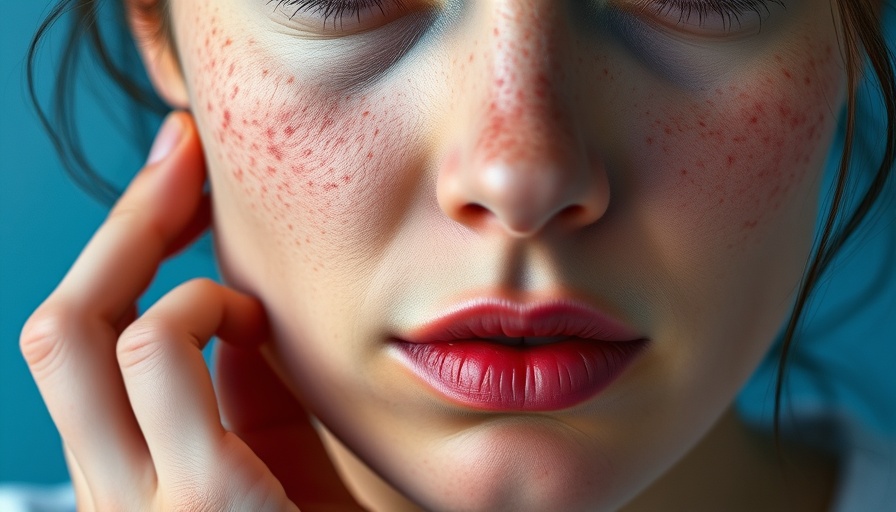
Understanding Skin Dehydration: A Common Yet Overlooked Concern
Skin health is a vital part of our overall well-being, yet many of us neglect the importance of hydration. While most people are aware of dry skin, dehydrated skin is often misunderstood. Unlike chronic dryness, dehydration can manifest temporarily, leading to confusion between the two. By grasping the distinctions, you can better address your skin's unique needs.
Identifying Dehydrated Skin: The Pinch Test
A simple and effective method for recognizing dehydrated skin is to perform the pinch test. Celebrity esthetician Joanna Vargas suggests a gentle pinch of the skin on your cheek. If the skin exhibits fine lines upon being pinched, it signals dehydration. Conversely, if the skin remains firm and bouncy, it indicates adequate hydration.
Why Hydration Matters for Overall Health
Skin dehydration can lead to more than aesthetic concerns; it can impact your overall health. Dehydrated skin may also exacerbate conditions such as diabetes and high cholesterol by signaling underlying health issues. For individuals managing high blood sugar or cholesterol levels, addressing skin hydration can contribute to a comprehensive health strategy.
Next Steps: Practical Hydration Solutions
Once you've determined that dehydration is an issue, what can you do about it? Here are several actionable strategies:
- Incorporate Hyaluronic Acid: This powerhouse ingredient retains moisture, making it a key addition to your skincare routine.
- Layer Oils Over Moisturizers: Known as "slugging," this technique can lock in hydration and create a protective barrier.
- Utilize Ceramide Creams: These help restore your skin barrier, keeping moisture locked in.
- Keep a Humidifier Handy: Especially in dry environments, this can significantly benefit your skin.
- Prioritize Sun Protection: UV rays can strip moisture from the skin, so consistent sun care is vital.
- Ingest Hydration Internally: Consider supplements like hyaluronic acid and collagen to further support skin health.
Balancing Hydration With Lifestyle: Nutrition Matters!
Beyond topical treatments, nutrition plays a crucial role in skin hydration. For those managing metabolic health issues, such as high blood sugar or cholesterol, integrating foods rich in vitamins and minerals can significantly enhance skin hydration. Foods high in omega-3 fatty acids, such as fish and nuts, can help maintain skin elasticity and moisture.
Exploring the Benefits of Intermittent Fasting and Keto Diets
Interestingly, diets like intermittent fasting and keto can also influence skin health. Studies suggest that intermittent fasting may promote cellular repair processes that enhance skin health, while a well-formulated keto diet can stabilize blood sugar levels, potentially benefiting both skin hydration and overall well-being.
Debunking Myths: Fine Lines Beyond Aging
A common misconception is that fine lines are solely a result of aging. Dehydration can also lead to the appearance of fine lines, regardless of age. Understanding this can prompt younger individuals to adopt proactive skincare routines that address dehydrated skin.
Conclusion: Proactive Steps Toward Healthier Skin
In summary, understanding the nuances of dehydrated skin can significantly impact your skincare routine and overall health. By acknowledging your skin’s hydration status and implementing practical solutions, you can feel more confident in your appearance and improve your metabolic health. Don't underestimate the link between your skin and your overall wellness.
Are you ready to enhance your skin hydration while taking control of your health? Integrate hydration strategies and healthy lifestyle choices today!
 Add Row
Add Row  Add
Add 



 Add Row
Add Row  Add
Add 


Write A Comment